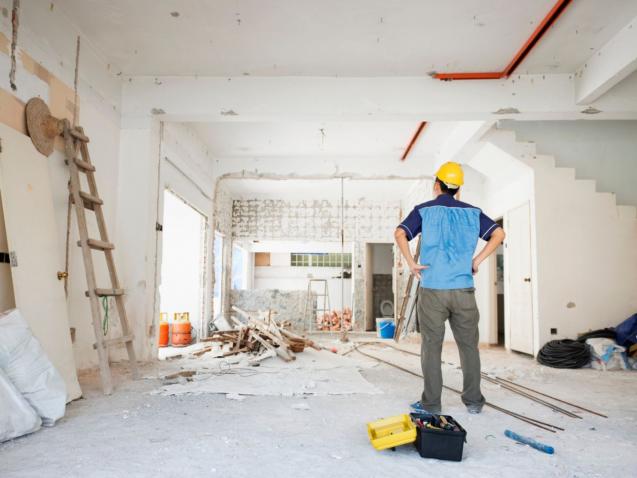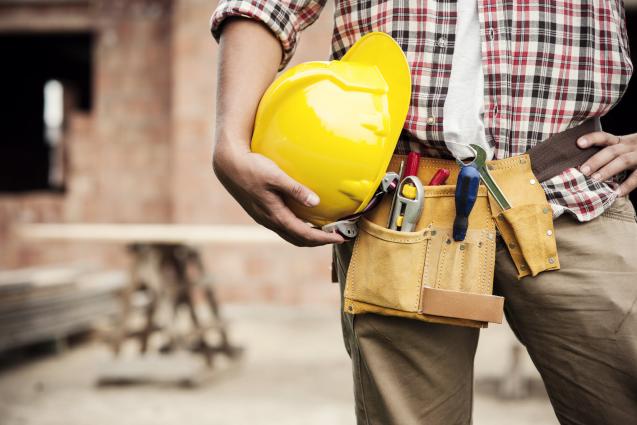
Tips For Living in a House While Renovating
It's not uncommon for homeowners to live in a house that's undergoing renovations. As long as there are no unstable structures, most builders are able to accommodate you living in your house during a major home renovation. There are many benefits of living on site during a home renovation. It can help you save money that’s better spent on the actual living space and it also eliminates the stress of having to find a new temporary home to base yourself out of.
If you do decide to stay, there are some things you can do to make it easier. Here are some tips for keeping safe whilst living through a home renovation.
1) Don't renovate the whole house at once
This may be common sense for those currently living in a house undergoing renovations, but some homeowners will go ahead and renovate the whole house at once. If you do this, then living through a renovation will add extra unnecessary stress. Not only will you not be able to access the necessities you need throughout the house to get through the day, but it can also create an unsafe environment for you and your family. If you’re living in a home while renovating, try to only work on one area of the house at once and ensure you have at least one room free that you can use in the meantime.
2) Keep your living and work areas separated
Whilst renovating, try to keep your living and work areas separate. Not only can this prevent you from having to continuously adjust your living space as the renovations change, but it will also ensure you, your children and pets are kept safe from the hazards of a building site such as any exposed wires, debris, or tools.
3) Keep your doors and windows shut
The renovation process can generate a lot of dust and debris. You don't want to risk spreading all that junk into your living space, so be sure to keep the door closed at all times. You also want to ensure that all doors and windows can be fully locked during the renovation to protect your home against any potential thieves.
4) Use tarps to keep floors and furniture protected
Living in a house while renovating is basically equivalent to living inside of a construction site, meaning debris is inevitable. During the renovation, it may not be feasible to move everything out of your home. To protect your existing living areas, try using tarps to cover items that you don't want damaged. You can also purchase heavy-duty custom tarps suitable for covering any large bulky items.
5) Keep living essentials on hand
Remember, there may be times where you might not be able to access your refrigerator, cooking appliances or even your kitchen sink. Be sure to keep some necessities on hand such as non-refrigerated food and snacks. In addition to food, it's a good idea to keep essentials such as torches, blankets, water, and other living must-haves in easy reach.
6). Declutter
As the old adage goes, 'a clear space equals a clear mind.' Decluttering your home will not only make it physically easier to redecorate, with less clutter to navigate around, but it'll also help to reduce your stress levels and increase your productivity. Get rid of any old items you no longer use or that don't hold any sentimental value. And tidy the remainder of your belongings away into cupboards or drawers, so that the floors and surfaces are clear.
If your home doesn't have sufficient storage space to house your belongings, consider renting a storage container. The additional space you'll have in your home may well be worth the additional expense.
7). Make Time to De-Stress
Renovating can be extremely stressful, what with so many balls to juggle all whilst living on a building site. Try to make time to de-stress on a regular basis, be it a daily walk in the park, meditation, chilling with a book, or catching up with friends.
And if you still find you're struggling to deal with the stress of renovating, consider engaging a psychologist. A psychologist can help you develop coping strategies, provide emotional support, and offer valuable insights to navigate the challenges and pressures associated with the renovation process. With their expertise in managing stress and improving mental well-being, a psychologist can assist you in maintaining a positive mindset and achieving a smoother renovation experience.
If you do decide to stay, there are some things you can do to make it easier. Here are some tips for keeping safe whilst living through a home renovation.
1) Don't renovate the whole house at once
This may be common sense for those currently living in a house undergoing renovations, but some homeowners will go ahead and renovate the whole house at once. If you do this, then living through a renovation will add extra unnecessary stress. Not only will you not be able to access the necessities you need throughout the house to get through the day, but it can also create an unsafe environment for you and your family. If you’re living in a home while renovating, try to only work on one area of the house at once and ensure you have at least one room free that you can use in the meantime.
2) Keep your living and work areas separated
Whilst renovating, try to keep your living and work areas separate. Not only can this prevent you from having to continuously adjust your living space as the renovations change, but it will also ensure you, your children and pets are kept safe from the hazards of a building site such as any exposed wires, debris, or tools.
3) Keep your doors and windows shut
The renovation process can generate a lot of dust and debris. You don't want to risk spreading all that junk into your living space, so be sure to keep the door closed at all times. You also want to ensure that all doors and windows can be fully locked during the renovation to protect your home against any potential thieves.
4) Use tarps to keep floors and furniture protected
Living in a house while renovating is basically equivalent to living inside of a construction site, meaning debris is inevitable. During the renovation, it may not be feasible to move everything out of your home. To protect your existing living areas, try using tarps to cover items that you don't want damaged. You can also purchase heavy-duty custom tarps suitable for covering any large bulky items.
5) Keep living essentials on hand
Remember, there may be times where you might not be able to access your refrigerator, cooking appliances or even your kitchen sink. Be sure to keep some necessities on hand such as non-refrigerated food and snacks. In addition to food, it's a good idea to keep essentials such as torches, blankets, water, and other living must-haves in easy reach.
6). Declutter
As the old adage goes, 'a clear space equals a clear mind.' Decluttering your home will not only make it physically easier to redecorate, with less clutter to navigate around, but it'll also help to reduce your stress levels and increase your productivity. Get rid of any old items you no longer use or that don't hold any sentimental value. And tidy the remainder of your belongings away into cupboards or drawers, so that the floors and surfaces are clear.
If your home doesn't have sufficient storage space to house your belongings, consider renting a storage container. The additional space you'll have in your home may well be worth the additional expense.
7). Make Time to De-Stress
Renovating can be extremely stressful, what with so many balls to juggle all whilst living on a building site. Try to make time to de-stress on a regular basis, be it a daily walk in the park, meditation, chilling with a book, or catching up with friends.
And if you still find you're struggling to deal with the stress of renovating, consider engaging a psychologist. A psychologist can help you develop coping strategies, provide emotional support, and offer valuable insights to navigate the challenges and pressures associated with the renovation process. With their expertise in managing stress and improving mental well-being, a psychologist can assist you in maintaining a positive mindset and achieving a smoother renovation experience.



